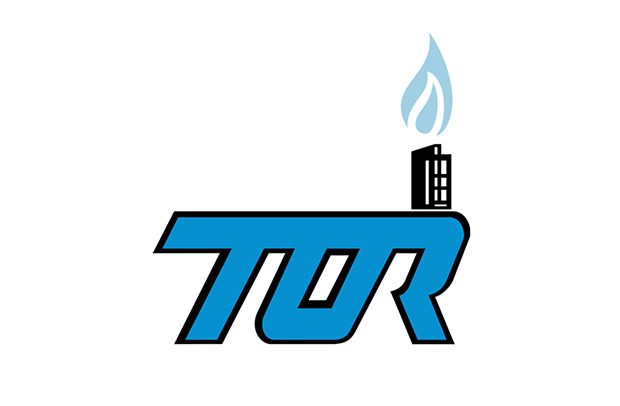
…of financing contracts for infrastructural projects
Infrastructural projects are critical for the development of modern societies, as they provide the necessary infrastructure for economic growth, social development, and environmental sustainability. They are complex and require detailed planning, coordination, and execution to ensure their success. One of the key factors in the success of infrastructure projects is the negotiation of financing contracts. Project managers play a crucial role in this process, as they are responsible for coordinating the development of infrastructure projects within an organization, directing infrastructure projects, defining tasks and timelines, coordinating across departments, managing budgets, and ensuring timely delivery. [[1]] In this context, involving project managers in the negotiation of financing contracts for infrastructure projects can have several benefits. In this article, we will explore the benefits of involving project managers in the negotiation of financing contracts for infrastructural projects and how project managers can balance the interests of different stakeholders in this process. [[2]][[3]][[4]][[5]]
A finance contract is a legal agreement between two parties that outlines the terms and conditions of a financial transaction. In the context of infrastructural projects, finance contracts are agreements between the project sponsor and the lender that provides funding for the project. These contracts typically include details such as the amount of funding provided, the interest rate, repayment terms as well as collateral or security documentation.
Benefits of Involving Project Managers
Contracts for infrastructure projects are very elaborate and can be complex. The parties usually involved in the negotiation of these contracts are the financing parties and the project sponsors. Involving the project managers for these projects in the negotiations has merits that will minimise the need for amendments resulting from inadvertent omissions that are relevant for aligning the financing requirements to the project schedule and milestones. Some of the benefits of involving project managers in the negotiation of financing contracts for infrastructural projects are outlined below.
Aligning and Prioritizing Key Objectives
Project managers possess a comprehensive understanding of the project’s objectives, scope, and timeline, enabling them to negotiate financing terms that align with the project’s specific requirements and goals. Project managers are well-versed in the intricacies of the project. They are intimately familiar with the key milestones and resource allocation needed to complete projects. Project managers prioritize key objectives from the project plan and understand how risks or rewards rank after the initial needs are met. This can help them negotiate better terms and conditions that align with the organization’s goals. By actively participating in the negotiation process, project managers can ensure that the financing terms are tailored to the project’s unique needs. This includes considering factors such as the duration of the project, cash flow requirements, and any special considerations related to materials or technology. By negotiating terms that fit the project’s goals, project managers can secure financing that optimizes the project’s potential for success.
Understanding Counterparty’s Motives
Project managers are trained to ask probing questions and understand counterparty motives during negotiation and requirement elicitation. By conducting an in-depth stakeholder analysis and exploring their power dynamics, interests, and influence, project managers can effectively tailor their negotiation approach to meet the project’s specific needs. Armed with this understanding, project managers are better equipped to prioritize their needs and negotiate mutually beneficial solutions, effectively liaising between stakeholders, such as contractors, funders, and government bodies, to facilitate a smooth negotiation process. A project manager’s involvement establishes trust and understanding among all parties involved, leading to better negotiation outcomes. This strategy can pave the way for accomplishing common goals and objectives. The project manager’s ability in forming coalitions, temporary alliances, or partnerships, can prove highly effective in achieving project objectives by harnessing the right mix of power and interest.
Risk Identification and Mitigation
Project managers possess expertise in project planning and risk management. They can assess the financial risks involved in the project and negotiate contracts that address and mitigate these risks. Project managers understand the potential risks associated with cost overruns, changes in scope, delays, or unforeseen circumstances, and can negotiate contract terms that protect against these risks. They can work with stakeholders to establish contingency plans, determine appropriate insurance coverage, or incorporate clauses that provide flexibility in case of unforeseen circumstances. By actively participating in negotiations, project managers ensure that financing terms are favorable and tailored to minimize financial burdens and enhance the overall viability of the project.
Ensuring Timely Project Delivery
Timely delivery is a crucial factor in the success of infrastructure projects. Delays can lead to cost overruns, disruptions to public services, and negative impacts on the overall project objectives. Involving project managers in the negotiation of financing contracts can play a vital role in ensuring timely project completion. By actively participating in contract negotiations and defining tasks and timelines, project managers can establish clear expectations, track progress, and report to executive officers throughout all phases of the project. Project managers can monitor progress against the defined tasks and timelines, detect potential delays early on, and take corrective actions to bring the project back on track.
Efficient Cost Management
Cost management is a crucial aspect of project management that entails controlling and reducing expenses throughout the project lifecycle. In the realm of infrastructural projects, where budgets can be substantial and resources limited, effective cost management becomes even more critical. One approach that can significantly contribute to cost management is involving project managers in the negotiation of financing contracts with suppliers and contractors. Project managers’ expertise in cost estimation and forecasting enables them to evaluate cost estimates provided by suppliers and contractors, prevent unnecessary expenses, and secure competitive pricing for materials, services, and labour. This collaborative effort between project managers and financial stakeholders can yield numerous benefits and ensure the overall success of the project within the project budget.
Building Strong Stakeholder Relationships
Project managers, through building strong relationships with suppliers and contractors, play a key role in negotiating contracts. Effective negotiations due to the Project Managers skills can result in better conditions from which both sides can take significant profits which is the ideal situation for maintaining a positive connection and partnership even for future projects. [6]
Project managers have strong communication and collaboration skills thus they are able to effectively liaise between stakeholders, such as contractors, funders, and government bodies. Project managers can bridge any potential communication gaps between different stakeholders and ensure that everyone involved has a clear understanding of the project’s financial requirements and objectives.
Through effective communication and collaboration, project managers can establish trust and understanding among all stakeholders. This trust-building process is crucial in fostering positive relationships and enhancing collaboration, which ultimately leads to better negotiation and project outcomes.
Conclusion
In conclusion, involving project managers in the negotiation of financing contracts for infrastructural projects has several benefits, including prioritizing key objectives, understanding counterparty motives, managing risks, ensuring timely delivery, efficient cost management, and building strong stakeholders relationships.
Overall, involving project managers in the negotiation of financing contracts for infrastructural projects can lead to more tailored agreements. Their comprehensive understanding of the project, expertise in project planning and risk management, and effective communication and collaboration skills make them invaluable in securing favorable financing terms that align with the project’s specific requirements and goals. By actively participating in negotiations, project managers can ensure that the project’s financial needs are met, minimizing potential risks and maximizing its’ potential for all stakeholders.
The author is with Banking and Finance Think Tank, Project Management Institute, Ghana Chapter
[1] https://opentextbc.ca/projectmanagement/chapter/chapter-13-procurement-management-project-management/
[2] https://www.oecd.org/daf/inv/investment-policy/Fostering-Investment-in-Infrastructure.pdf
[3] https://www.cmu.edu/cee/projects/PMbook/01_The_Owners’_Perspective.html
[4]https://opentextbc.ca/projectmanagement/chapter/chapter-4-framework-for-project-management-project-management/
[5] https://www.pmi.org/learning/library/negotiating-project-outcomes-develop-skills-6781
[6] http://wiki.doing-projects.org/index.php/Negotiation_skills_from_the_PM's_perspective
The post Benefits of involving project managers in negotiation appeared first on The Business & Financial Times.
Read Full Story






















Facebook
Twitter
Pinterest
Instagram
Google+
YouTube
LinkedIn
RSS